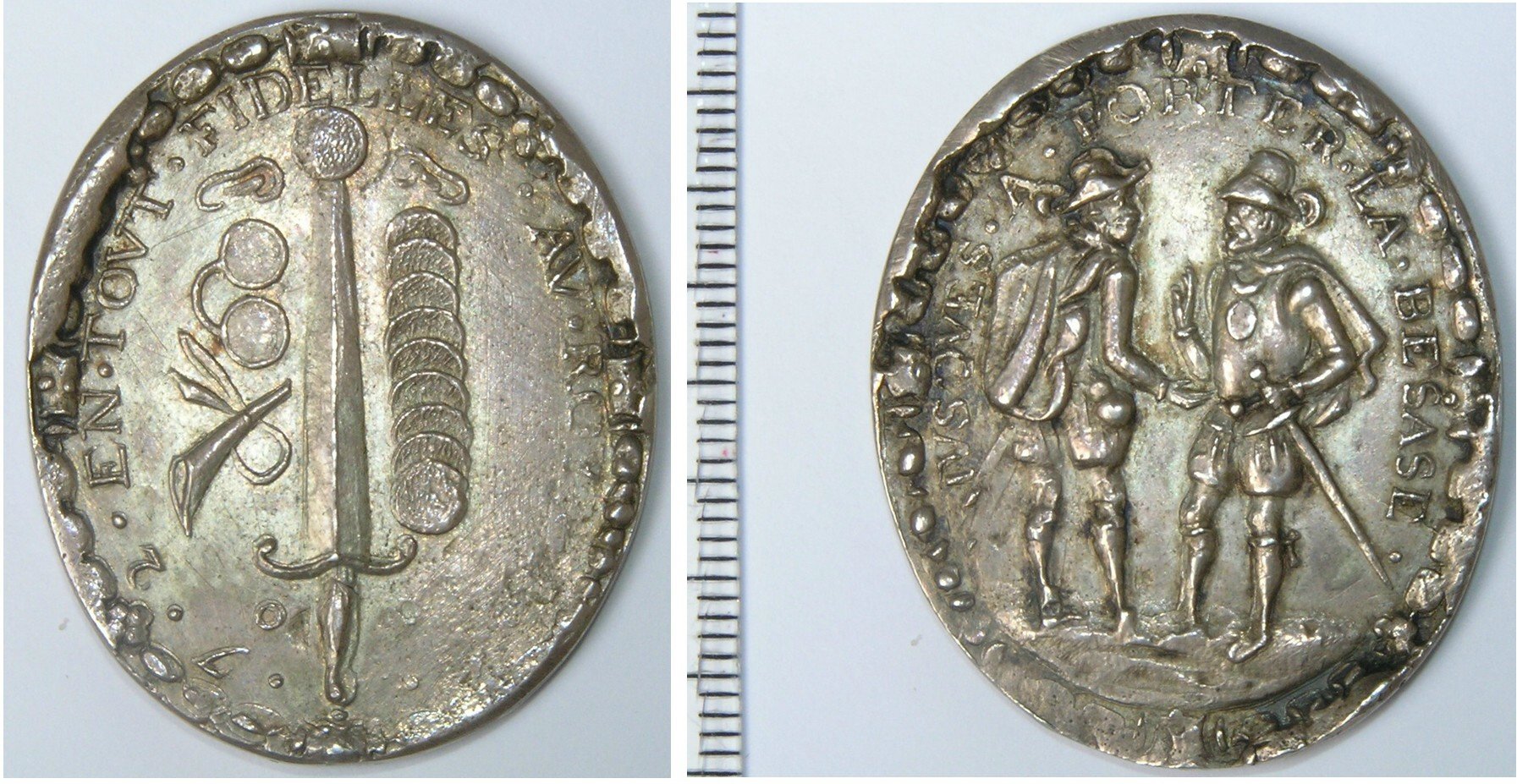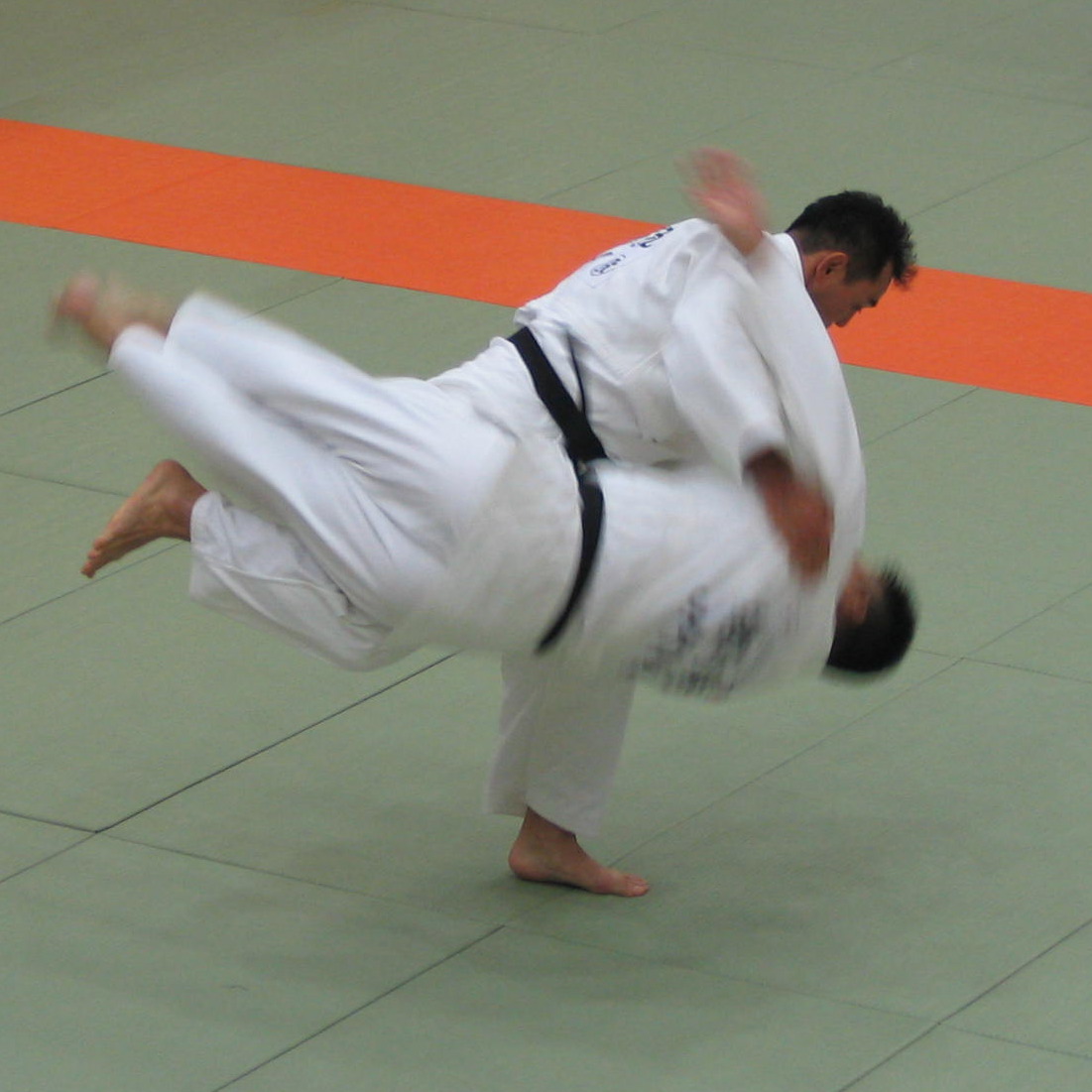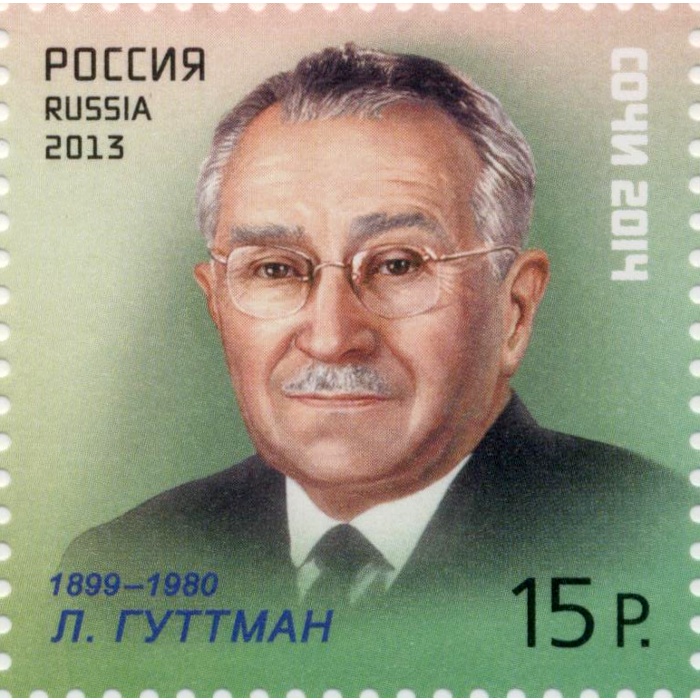|
Makoto Hirose
is a Japanese Paralympic judoka in Lightweight. In 2004 he won the silver medal in the men's 60 kg, but was not upgraded when Sergio Arturo Perez was stripped of his gold medal after testing positive for a banned substance. In 2008 he made it to the quarter-finals but lost to Mouloud Noura (Algeria). In 2012 he switched to 66 kg (half-lightweight) and lost the semi-final to Zhao Xu (China). The 2016 Summer Paralympics in Rio will be his fourth Games. In the 60 kg, he won his second silver medal when Sherzod Namozov (Uzbekistan) beat him in the final. At the 2010 Asian Para Games The 2010 Asian Para Games (), also known as the First Asian Para Games, was a parallel sport event for Asian athletes with a disability held in Guangzhou, People's Republic of China, China. Two weeks after the conclusion of the 2010 Asian Games, 1 ... he won a bronze medal in the men's -66 kg event. References External links * 1976 births Living people Japanese male judok ... [...More Info...] [...Related Items...] OR: [Wikipedia] [Google] [Baidu] |
Living People
Related categories * :Year of birth missing (living people) / :Year of birth unknown * :Date of birth missing (living people) / :Date of birth unknown * :Place of birth missing (living people) / :Place of birth unknown * :Year of death missing / :Year of death unknown * :Date of death missing / :Date of death unknown * :Place of death missing / :Place of death unknown * :Missing middle or first names See also * :Dead people * :Template:L, which generates this category or death years, and birth year and sort keys. : {{DEFAULTSORT:Living people 21st-century people People by status ... [...More Info...] [...Related Items...] OR: [Wikipedia] [Google] [Baidu] |
Medalists At The 2016 Summer Paralympics
A medal or medallion is a small portable artistic object, a thin disc, normally of metal, carrying a design, usually on both sides. They typically have a commemorative purpose of some kind, and many are presented as awards. They may be intended to be worn, suspended from clothing or jewellery in some way, although this has not always been the case. They may be struck like a coin by dies or die-cast in a mould. A medal may be awarded to a person or organisation as a form of recognition for sporting, military, scientific, cultural, academic, or various other achievements. Military awards and decorations are more precise terms for certain types of state decoration. Medals may also be created for sale to commemorate particular individuals or events, or as works of artistic expression in their own right. In the past, medals commissioned for an individual, typically with their portrait, were often used as a form of diplomatic or personal gift, with no sense of being an award for ... [...More Info...] [...Related Items...] OR: [Wikipedia] [Google] [Baidu] |
Medalists At The 2004 Summer Paralympics
A medal or medallion is a small portable artistic object, a thin disc, normally of metal, carrying a design, usually on both sides. They typically have a commemorative purpose of some kind, and many are presented as awards. They may be intended to be worn, suspended from clothing or jewellery in some way, although this has not always been the case. They may be struck like a coin by dies or die-cast in a mould. A medal may be awarded to a person or organisation as a form of recognition for sporting, military, scientific, cultural, academic, or various other achievements. Military awards and decorations are more precise terms for certain types of state decoration. Medals may also be created for sale to commemorate particular individuals or events, or as works of artistic expression in their own right. In the past, medals commissioned for an individual, typically with their portrait, were often used as a form of diplomatic or personal gift, with no sense of being an award for ... [...More Info...] [...Related Items...] OR: [Wikipedia] [Google] [Baidu] |
Judoka At The 2016 Summer Paralympics
is an unarmed modern Japanese martial art, Olympic sport (since 1964), and the most prominent form of jacket wrestling competed internationally.『日本大百科全書』電子版【柔道】(CD-ROM version of Encyclopedia Nipponica, "Judo"). Judo was created in 1882 by Kanō Jigorō () as an eclectic martial art, distinguishing itself from its predecessors (primarily Tenjin Shinyo-ryu jujutsu and Kitō-ryū jujutsu) due to an emphasis on "randori" (, lit. 'free sparring') instead of "kata" (pre-arranged forms) alongside its removal of striking and weapon training elements. Judo rose to prominence for its dominance over established jujutsu schools in tournaments hosted by the Tokyo Metropolitan Police Department (警視庁武術大会, ''Keishicho Bujutsu Taikai''), resulting in its adoption as the department's primary martial art. A judo practitioner is called a , and the judo uniform is called . The objective of competitive judo is to throw an opponent, immobilize them with ... [...More Info...] [...Related Items...] OR: [Wikipedia] [Google] [Baidu] |
Judoka At The 2012 Summer Paralympics
is an unarmed modern Japanese martial art, Olympic sport (since 1964), and the most prominent form of jacket wrestling competed internationally.『日本大百科全書』電子版【柔道】(CD-ROM version of Encyclopedia Nipponica, "Judo"). Judo was created in 1882 by Kanō Jigorō () as an eclectic martial art, distinguishing itself from its predecessors (primarily Tenjin Shinyo-ryu jujutsu and Kitō-ryū jujutsu) due to an emphasis on "randori" (, lit. 'free sparring') instead of "kata" (pre-arranged forms) alongside its removal of striking and weapon training elements. Judo rose to prominence for its dominance over established jujutsu schools in tournaments hosted by the Tokyo Metropolitan Police Department (警視庁武術大会, ''Keishicho Bujutsu Taikai''), resulting in its adoption as the department's primary martial art. A judo practitioner is called a , and the judo uniform is called . The objective of competitive judo is to throw an opponent, immobilize them with ... [...More Info...] [...Related Items...] OR: [Wikipedia] [Google] [Baidu] |
Judoka At The 2008 Summer Paralympics
is an unarmed modern Japanese martial art, Olympic sport (since 1964), and the most prominent form of jacket wrestling competed internationally.『日本大百科全書』電子版【柔道】(CD-ROM version of Encyclopedia Nipponica, "Judo"). Judo was created in 1882 by Kanō Jigorō () as an eclectic martial art, distinguishing itself from its predecessors (primarily Tenjin Shinyo-ryu jujutsu and Kitō-ryū jujutsu) due to an emphasis on "randori" (, lit. 'free sparring') instead of "kata" (pre-arranged forms) alongside its removal of striking and weapon training elements. Judo rose to prominence for its dominance over established jujutsu schools in tournaments hosted by the Tokyo Metropolitan Police Department (警視庁武術大会, ''Keishicho Bujutsu Taikai''), resulting in its adoption as the department's primary martial art. A judo practitioner is called a , and the judo uniform is called . The objective of competitive judo is to throw an opponent, immobilize them with ... [...More Info...] [...Related Items...] OR: [Wikipedia] [Google] [Baidu] |
Judoka At The 2004 Summer Paralympics
is an unarmed gendai budō, modern Japanese martial art, Olympic sport (since 1964), and the most prominent form of jacket wrestling competed internationally.『日本大百科全書』電子版【柔道】(CD-ROM version of Encyclopedia Nipponica, "Judo"). Judo was created in 1882 by Kanō Jigorō () as an eclectic martial art, distinguishing itself from its predecessors (primarily Tenjin Shin'yō-ryū, Tenjin Shinyo-ryu jujutsu and Kitō-ryū jujutsu) due to an emphasis on "randori" (, lit. 'free sparring') instead of "kata" (pre-arranged forms) alongside its removal of striking and weapon training elements. Judo rose to prominence for its dominance over Kodokan–Totsuka rivalry, established jujutsu schools in tournaments hosted by the Tokyo Metropolitan Police Department (警視庁武術大会, ''Keishicho Bujutsu Taikai''), resulting in its adoption as the department's primary martial art. A judo practitioner is called a , and the judo uniform is called . The objective of co ... [...More Info...] [...Related Items...] OR: [Wikipedia] [Google] [Baidu] |
Paralympic Medalists In Judo
The Paralympic Games or Paralympics, also known as the ''Games of the Paralympiad'', is a periodic series of international multisport events involving athletes with a range of physical disabilities, including impaired muscle power and impaired passive range of movement, limb deficiency, leg length difference, short stature, hypertonia, ataxia, athetosis, vision impairment and intellectual impairment. There are Winter and Summer Paralympic Games, which since the 1988 Summer Olympics in Seoul, South Korea, are held almost immediately following the respective Olympic Games. All Paralympic Games are governed by the International Paralympic Committee (IPC). The Paralympics has grown from a small gathering of British World War II veterans in 1948 to become one of the largest international sporting events by the early 21st century. The Paralympics has grown from 400 athletes with a disability from 23 countries in Rome 1960, where they were proposed by doctor Antonio Maglio, to 4,520 ... [...More Info...] [...Related Items...] OR: [Wikipedia] [Google] [Baidu] |
Paralympic Silver Medalists For Japan
The Paralympic Games or Paralympics, also known as the ''Games of the Paralympiad'', is a periodic series of international multisport events involving athletes with a range of physical disabilities, including impaired muscle power and impaired passive range of movement, limb deficiency, leg length difference, short stature, hypertonia, ataxia, athetosis, vision impairment and intellectual impairment. There are Winter and Summer Paralympic Games, which since the 1988 Summer Olympics in Seoul, South Korea, are held almost immediately following the respective Olympic Games. All Paralympic Games are governed by the International Paralympic Committee (IPC). The Paralympics has grown from a small gathering of British World War II veterans in 1948 to become one of the largest international sporting events by the early 21st century. The Paralympics has grown from 400 athletes with a disability from 23 countries in Rome 1960, where they were proposed by doctor Antonio Maglio, to 4,520 ... [...More Info...] [...Related Items...] OR: [Wikipedia] [Google] [Baidu] |
Paralympic Judoka Of Japan
The Paralympic Games or Paralympics, also known as the ''Games of the Paralympiad'', is a periodic series of international multisport events involving athletes with a range of physical disabilities, including impaired muscle power and impaired passive range of movement, limb deficiency, leg length difference, short stature, hypertonia, ataxia, athetosis, vision impairment and intellectual impairment. There are Winter and Summer Paralympic Games, which since the 1988 Summer Olympics in Seoul, South Korea, are held almost immediately following the respective Olympic Games. All Paralympic Games are governed by the International Paralympic Committee (IPC). The Paralympics has grown from a small gathering of British World War II veterans in 1948 to become one of the largest international sporting events by the early 21st century. The Paralympics has grown from 400 athletes with a disability from 23 countries in Rome 1960, where they were proposed by doctor Antonio Maglio, to 4,520 ... [...More Info...] [...Related Items...] OR: [Wikipedia] [Google] [Baidu] |
Japanese Male Judoka
Japanese may refer to: * Something from or related to Japan, an island country in East Asia * Japanese language, spoken mainly in Japan * Japanese people, the ethnic group that identifies with Japan through ancestry or culture ** Japanese diaspora, Japanese emigrants and their descendants around the world * Japanese citizens, nationals of Japan under Japanese nationality law ** Foreign-born Japanese, naturalized citizens of Japan * Japanese writing system, consisting of kanji and kana * Japanese cuisine, the food and food culture of Japan See also * List of Japanese people * * Japonica (other) * Japonicum * Japonicus * Japanese studies Japanese studies (Japanese: ) or Japan studies (sometimes Japanology in Europe), is a sub-field of area studies or East Asian studies involved in social sciences and humanities research on Japan. It incorporates fields such as the study of Japanese ... {{disambiguation Language and nationality disambiguation pages ... [...More Info...] [...Related Items...] OR: [Wikipedia] [Google] [Baidu] |





